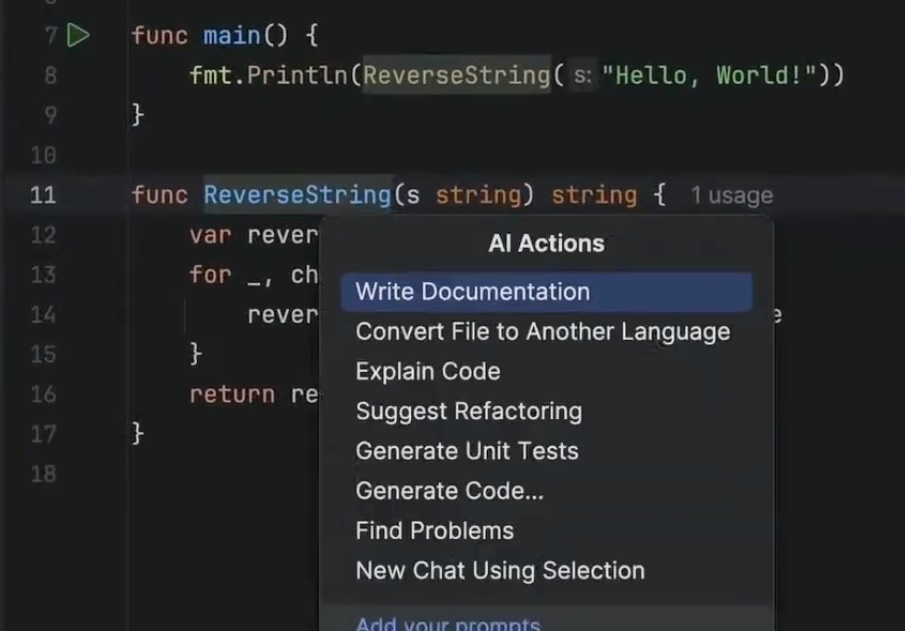
JetBrains has released its AI Assistant, now available in the 2023.3 versions of its range of IDEs and its next-generation Fleet IDE. It will only be available in paid IDEs and will cost from $8.33 per user/month for individuals, or $16.67 for organizations.
The new Assistant is based on the JetBrains AI Service, which gives the company the ability to use multiple LLM (Large Language Model) services, though Team Lead Vladislav Tankov, said: “Right now we use a combination of OpenAI’s latest models such as GPT-3.5 and GPT-4, as well as our own LLMs.”
Soon to be added is Google’s Codey and Vertex AI, though developers will not be able to choose. “AI service will select the best-fitting model under the hood,” we were told by a JetBrains spokesperson. The ability to choose an LLM provider manually may come to enterprise customers later. The FAQ adds that “For the on-premises scenario, we will serve the provider included in the cloud platform (AWS Anthropic, Google PaLm 2, or Azure OpenAI),” where the “cloud platform” presumably means the customer’s preferred cloud provider.
The JetBrains AI Assistant has several features, available from a right-click menu in the editor. These are:
- Write Documentation
- Convert file to another programming language
- Explain code
- Suggest Refactoring
- Generate Unit Tests
- Generate Code
- Find Problems
- Chat

The supported languages include all the main ones covered by JetBrains IDEs. However users must use a paid-for IDE rather than a community edition, and the plans for AI Assistant are on top. The cheapest subscription is for an individual with yearly commitment, at $100 for the year. Monthly billing is 20 percent more expensive, starting at $10 per month. Organizations pay twice as much per user, while Enterprise plans include on-premises installation and customization of AI models for a specific codebase, but pricing is not published.
JetBrains is well known for its excellent refactoring, and the name of its most comprehensive IDE, IntelliJ IDEA, hints at the company’s tradition of “intelligent” IDE assistance. The AI Assistant is therefore a natural step, and one user remarked during the video launch that the attraction of the product would be the same as for the IDEs: “user experience, interface, integration will probably be better than using any VSCode solutions.”
JetBrains is a little late though and Copilot is well established, alongside other contenders like AWS CodeWhisperer. Copilot is available for JetBrains IDEs and has over 5 million downloads of its extension.
Initial feedback is mixed. “I used it and then immediately stopped using it. The experience is even worse than just copy pasting code into ChatGPT on your own,” said a developer on Hacker News. Even more telling, some are finding Copilot addictive. “I’ve cancelled Copilot due to subscription fatigue and quickly found I can’t live without one … there’s no going back from Copilot,” said another.
Others are positive. “I am quite enjoying it! I tried Copilot and was very disappointed,” said an early user.
There are some grumbles about the price, though operating an AI service is expensive for the vendor, and according to the FAQ “to maintain an optimal level of performance and ensure fairness among all users, your access to the features may be adjusted based on your usage,” suggesting that heavy users may be rate-limited.
JetBrains is a significant IDE vendor and the launch of its AI Assistant demonstrates the extent to which this is now an essential feature for many developers, despite concerns over code quality and security. It will also likely improve: JetBrains CEO Max Shafirov said during the launch that “it is just the beginning, we have many things in the pipeline” – though competitors including GitHub and AWS are also fast improving their AI coding services.
